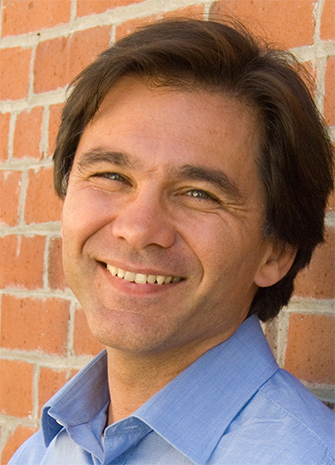
Stone Center Senior Scholar
Professor of Economics
CUNY Graduate Center
Miles Corak is a professor of economics at the Graduate Center. His research focuses on social mobility, inequality, and child rights. His findings documenting that higher inequality is associated with lower economic opportunity have been widely cited, and used by policy-makers worldwide.
Top print and electronic media, including The Wall Street Journal, The New York Times, The Economist, The Guardian, The Washington Post, and the BBC have all used Corak’s research on “The Great Gatsby Curve,” as has the White House.
Prior to joining the Graduate Center, Corak was a professor of economics at the University of Ottawa in Ottawa Canada, and for many years a member of the senior management at Statistics Canada, Canada’s national statistical agency. He has been a visiting researcher with the UNICEF Innocenti Research Centre in Florence, Italy; the Centre for Longitudinal Studies at the University of London; the Office of Population Research at Princeton University; and the Russell Sage Foundation; and was a visiting professor with the Department of Economics at Harvard University. During 2017, he served as the economist in residence with the Canadian federal government, advising on social policy reform and the country’s poverty reduction strategy.
Areas of Expertise
Labor Markets
Social and Economic Mobility
Social Policy
Child Poverty
Featured Work
Intergenerational Mobility Between and Within Canada and the United States
This paper looks at the cross-national and sub-national differences in mobility for approximately 1,000 regions analyzed within these countries.
Intergenerational Mobility Between and Within Canada and the United States
M. Connolly, M. Corak, and C. Haeck. Journal of Labor Economics. vol. 37, no. s2. 2019.
The Canadian Geography of Intergenerational Mobility
M. Corak. The Economic Journal. vol. 130, no. 631, pp. 2134–2174. 2020.
‘Inequality Is the Root of Social Evil,’ or Maybe Not? Two Stories About Inequality and Public Policy
M. Corak. Canadian Public Policy. vol. 42, no. 4. pp. 367-414. 2016.
Too Many Children Left Behind: The U.S. Achievement Gap in Comparative Perspective
B. Bradbury, M. Corak, J. Waldfogel, and E. Washbrook. New York: Russell Sage Foundation. 2015.
A Comparison of Upward and Downward Intergenerational Mobility in Canada, Sweden, and the United States
M. Corak, M.J. Lindquist, and B. Mazumder. Labour Economics. vol. 30. pp.185-200. 2014.
Income Inequality, Equality of Opportunity, and Intergenerational Mobility
M. Corak. Journal of Economic Perspectives. vol. 27, no. 3. pp. 79-102. 2013.
How to Slide Down the ‘Great Gatsby Curve’: Inequality, Life Chances, and Public Policy in the United States
M. Corak. The Center for American Progress. 2012.
Age at Immigration and the Adult Attainments of Child Migrants to the United States
M. Corak, A. Beck, and M. Tienda. The ANNALS of the American Academy of Political and Social Science. no. 643, no. 1. pp. 134–159. 2012.
Economic Mobility, Family Background, and the Well-Being of Children in the United States and Canada
M. Corak, L.J. Curtis, and S. Phipps. In Persistence, Privilege, and Parenting: The Comparative Study of Intergenerational Mobility. T.M. Smeeding, R. Erikson, and M. Jäntti (eds). Chapt. 3. New York: Russell Sage Foundation. 2011.
The Intergenerational Transmission of Employers
M. Corak and P. Piraino. Journal of Labor Economics. vol. 29, no. 1. pp. 37-68. 2011.
Reframing Public Policy Discourse for Dignity, Community, and Resilience
In this post, Stone Center Senior Scholar Miles Corak discusses economic justice. The text is adapted from Corak’s response during a panel discussion at the Pearson Institute’s 2023 Global Forum, held at the University of Chicago.
The Great Gatsby, Then and Now
In this post, Miles Corak explains how he came to write the introductory essay to a new edition of The Great Gatsby, now available from Century Press.
What Are the ‘Right’ Numbers to Use When Measuring Equality of Opportunity?
In this research spotlight, a paper by Miles Corak focuses on Australia to answer questions of theory, data, and statistics when calculating intergenerational mobility.
Social Mobility is Twice as Great in Canada as in the United States
In this research spotlight, a study by Miles Corak and colleagues of differences within the United States and Canada suggests why U.S. mobility is lower than in other rich countries.
Thoughts from the Stone Center on the Pandemic and Its Impact
In this commentary, Stone Center faculty — Miles Corak, Janet Gornick, Paul Krugman, Leslie McCall, Branko Milanovic, and Salvatore Morelli — each with unique expertise in the study of inequality, offer insights on the COVID-19 crisis.
What Inequality Means for Our Children
In this interview, Miles Corak speaks about his work as an economist and his new role at the Stone Center.
Miles Corak: Inequality and Social Mobility at the Pearson Global Forum 2023
In this video, Miles Corak joins a panel discussion on inequality and social mobility at the Pearson Institute's 2023 Global Forum.
Miles Corak: The Great Gatsby Curve
In this interview, Miles Corak discusses the fraying of the American Dream and the power of inequality to disrupt the promise of social mobility.
Virtual Workshop 2020: Inequality from the Child’s Perspective
In this presentation, Miles Corak describes how the advantages and disadvantages of family background are passed down from one generation to the next, perpetuating inequality.
Panel: Dream Hoarders — Is the Upper Middle Class Leaving Everyone Else Behind?
In this video, Stone Center scholars take a critical look at Richard V. Reeves' book, Dream Hoarders.
Divided Landscapes of Economic Opportunity: The Canadian Geography of Intergenerational Mobility
In this keynote lecture, Miles Corak discusses his research on mobility at the CRDCN Annual Conference in Montreal.


 Stone Center on Socio-Economic Inequality
Stone Center on Socio-Economic Inequality